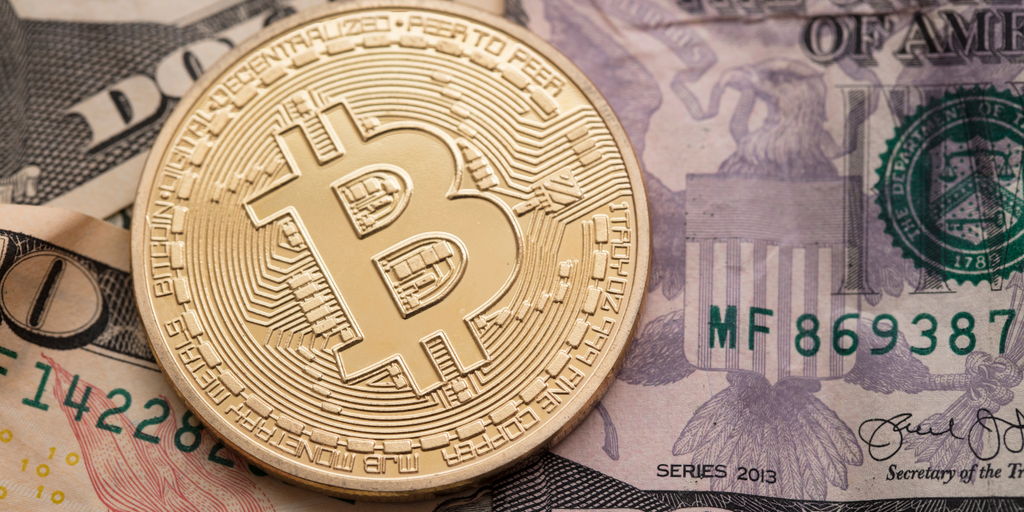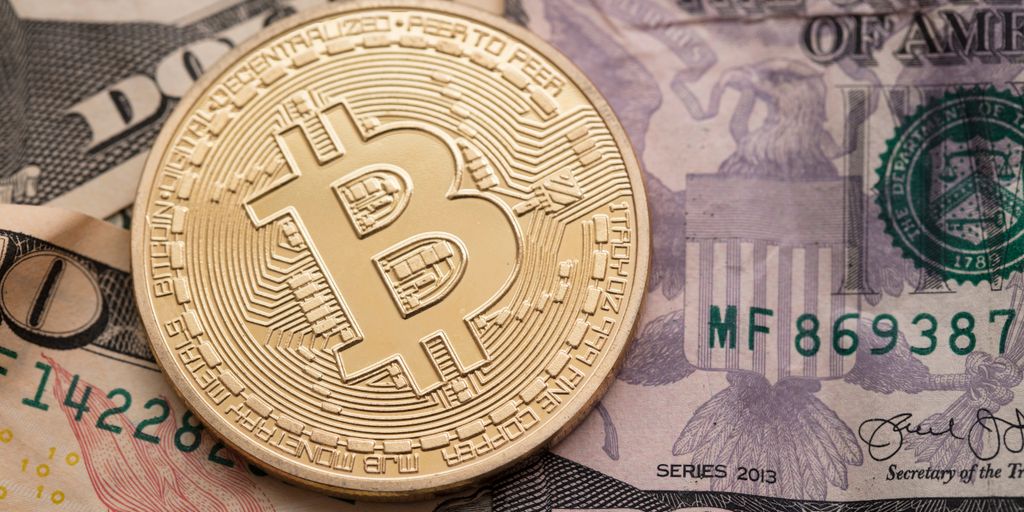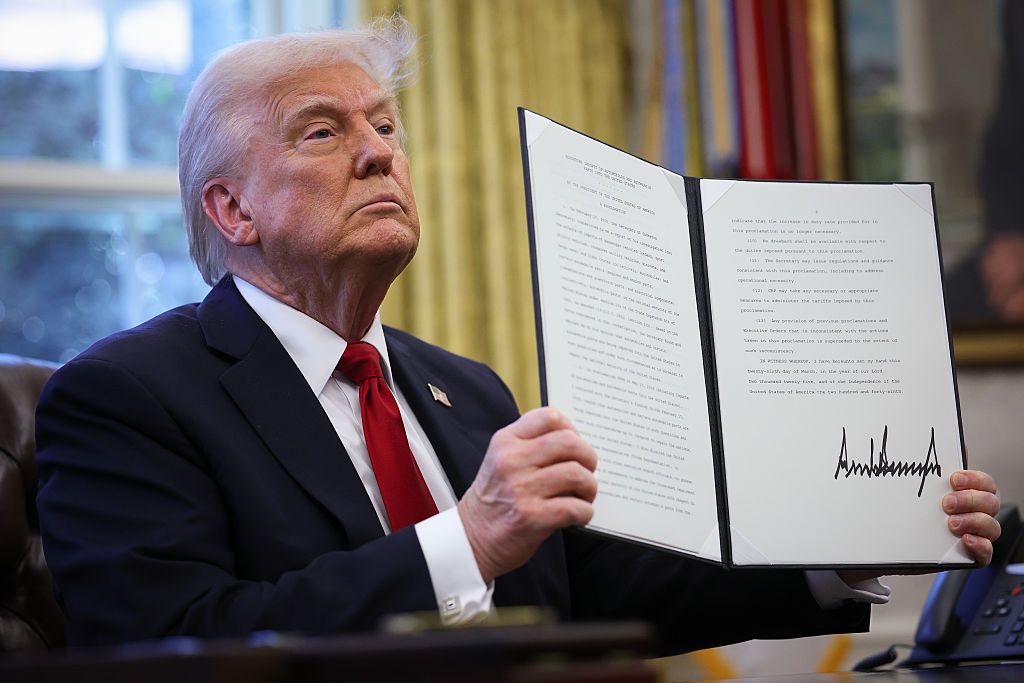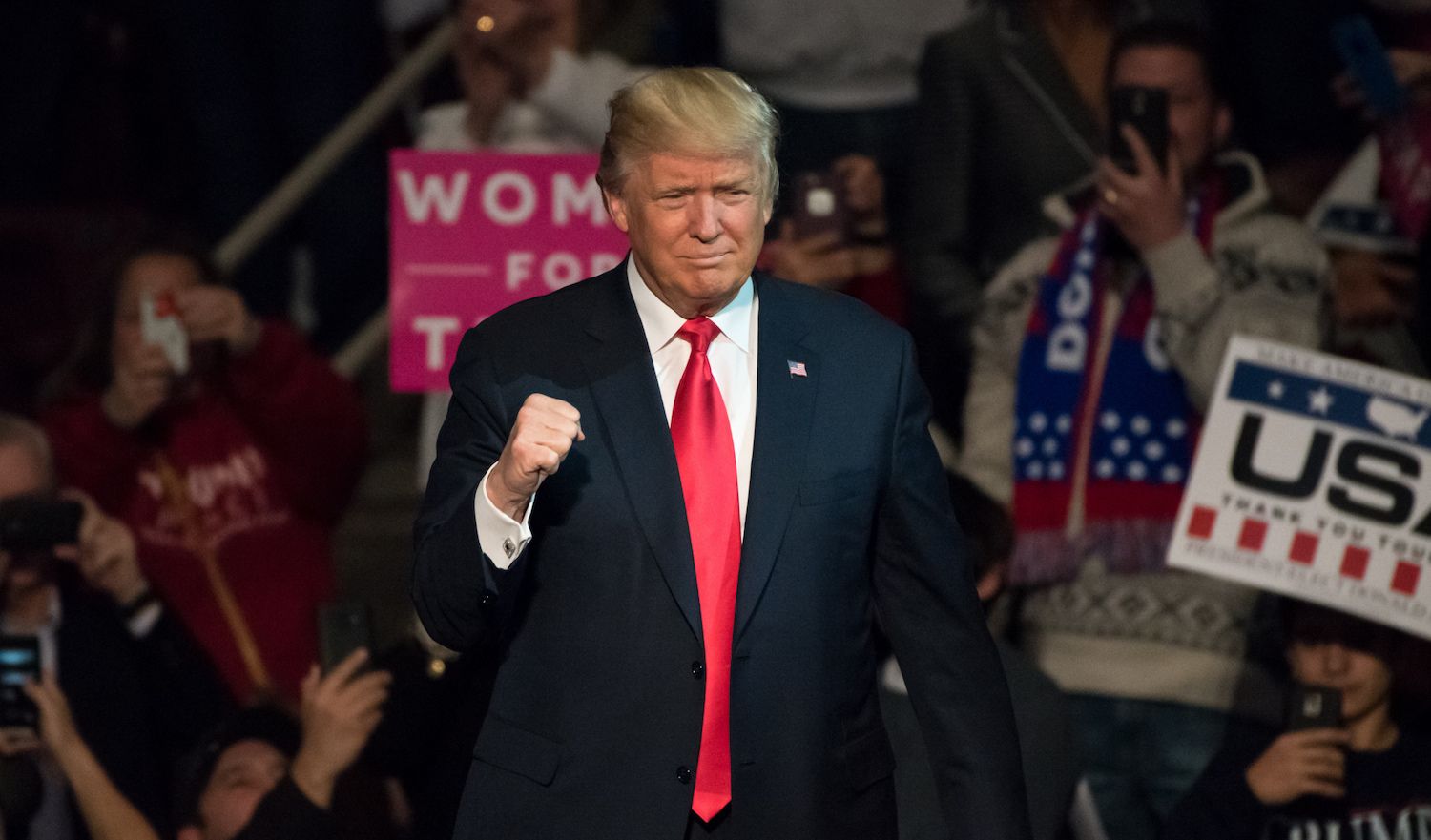Markets
This Week in Bitcoin: Bybit Hack Rocks Market as ETFs Bleed—But Institutions Remain Bullish
Published
1 month agoon
By
admin

Bitcoin will “bore you to a million dollars” was just one of the quotes circulating Crypto Twitter (aka X) this week as traders and influencers in the space bemoaned sideways price action.
The biggest and oldest digital coin barely budged until Friday, when it dipped following a hack of crypto exchange Bybit that resulted in over $1.4 billion worth of Ethereum and related tokens being swiped—the biggest crypto hack ever based on the value of the assets at the time of the incident. On top of that, U.S. inflation concerns prompted a risk asset selloff.
CoinGecko shows that Bitcoin is now priced at $96,750 per coin after having reached as high as $99,262 Friday morning, then plunging under $95,000 after the Bybit hack rocked markets. But over the last seven days, Bitcoin is nearly flat, falling just 0.7%.
Is the bull run over? Maybe not, but the coin is now 11% below the all-time high price of over $108,000 it touched in January.
ETF flows
Investors continued to pull cash out of the new American exchange-traded products, Farside Investors data shows, with money exiting the new funds every day of this week after U.S. markets were closed Monday. Nearly $365 million left the 10 funds on Thursday alone, marking the week’s worst day for flows. The other three days saw between $60-$65 million each in outflows.
“Bitcoin is going to bore you to a million dollars” – @BitcoinTina
Kinda starting to feel like he was right, but ironically too early to his own prediction.
— AMERICAN HODL
(@americanhodl8) February 17, 2025
Last week, the crypto ETFs lost money after the Federal Reserve hinted that it wasn’t in a hurry to cut interest rates. When new figures drop next week, we’ll again lackluster numbers for the products as American investors take a more cautious approach to speculating with inflation looking like it it’s here to stay—for now.
Institutions still bullish
Still, analysts at investment firm Bernstein think Bitcoin is only going up: They said in a Monday report that investors should be prepared for a further rally in the asset and equities related to it, as “the confluence of adoption by banks, institutional investors, corporates, and eventually sovereigns” pushes the price of the coin higher.
Bernstein analysts have made bullish predictions before, forecasting a 2025 price $200,000 by year end.
Fold goes public
And another Bitcoin company has gone mainstream: Financial services company Fold, which has a debit card and rewards users with Bitcoin for buying through its app, began trading publicly on the Nasdaq Composite on Wednesday.
One of the few Bitcoin companies to trade publicly, the listing shows more mainstream acceptance of the industry. Surely that’s bullish, right? You might think so, but FLD started trading at $10 on Wednesday, rose above $13, and then proceeded to fall under the $7 mark by the end of the day Friday amid the aforementioned markets chaos.
DOG expands to Solana
Elsewhere, the most valuable Bitcoin Runes meme coin, DOG•GO•TO•THE•MOON (or just DOG), became available on Solana thanks to a bridge that lets people trade it across both chains. DOG’s pseudonymous creator Leonidas told Decrypt that the token was “just following in the footsteps of BTC” in becoming more available to a larger crowd—and putting Bitcoin-related products in the hands of more people.
Not all Bitcoin maxis are likely to agree with that idea, but we’ll see whether it leads to a rise in the coin’s price. Right now, it’s up about 3% over the last 24 hours—but DOG has fallen sharply since hitting an all-time high price in December, down a whopping 72% since then.
Edited by Andrew Hayward
Daily Debrief Newsletter
Start every day with the top news stories right now, plus original features, a podcast, videos and more.
Source link
You may like


Kraken Secures Restricted Dealer Status in Canada Amid 'Turning Point' for Crypto in the Country


Binance Sidelines Pi Network Again In Vote To List Initiative, Here’s All


XRP Price Reversal Toward $3.5 In The Works With Short And Long-Term Targets Revealed


Former New York governor advised OKX over $505M federal probe: Report


First Digital USD (FDUSD) Depegs After Justin Sun Alleges Firm Is ‘Insolvent’ and Not Fulfilling Redemptions


Gen Z’s Bitcoin Bet, The Largest Wealth Transfer In History?
Canada
Kraken Secures Restricted Dealer Status in Canada Amid 'Turning Point' for Crypto in the Country
Published
36 minutes agoon
April 3, 2025By
admin

Crypto exchange Kraken has registered as a restricted dealer in Canada, allowing the exchange to continue offering crypto trading services to Canadian users under the country’s evolving regulatory framework.
The registration, announced on Tuesday, comes after a multi-year process that required exchanges to meet higher standards for investor protection and governance. Kraken said it worked closely with Canadian regulators during this pre-registration phase, upgrading its compliance systems and internal controls to meet expectations set by the Ontario Securities Commission (OSC).
To lead its Canadian expansion, Kraken named Cynthia Del Pozo as general manager for North America. Del Pozo, a fintech and operations veteran, will oversee strategy, regulatory engagement and business development across the region.
“Canada is at a turning point for crypto adoption,” said Del Pozo in a statement, pointing to growing interest from both retail and institutional investors. A recent survey cited by Kraken found that 30% of Canadian investors currently hold crypto assets.
Kraken also announced it will offer free Interac e-Transfer deposits for Canadian users, a move aimed at reducing friction for newcomers to the platform. The exchange claims it doubled its team and user base in Canada over the last two years and now manages over $2 billion CAD in client assets.
Mayur Gupta, Kraken’s chief marketing officer and general manager of growth, will be speaking at CoinDesk’s Consensus 2025 in Toronto on May 14-15.
Disclaimer: Parts of this article were generated with the assistance from AI tools and reviewed by our editorial team to ensure accuracy and adherence to our standards. For more information, see CoinDesk’s full AI Policy.
Source link
Markets
Why Trump’s Tariffs Could Actually be Good for Bitcoin
Published
1 day agoon
April 2, 2025By
admin

So far, crypto markets haven’t behaved as expected under the Trump Administration. Investors hoped that regulatory reform and policies like a Bitcoin Strategic Reserve would drive prices appreciably higher. But it’s been the opposite. Bitcoin has fallen from highs well above $100,000 at the beginning of the year to a trough in the mid-80,000s for most of March.
Crypto prices have suffered from being increasingly correlated with traditional assets like stocks and bonds, which have been hit by macroeconomic uncertainty. Tariffs — surcharges the U.S. places on imports from other countries — have Wall Street worried about a global recession. Crypto investors have been steering clear of crypto assets, which are seen as relatively risky.
“This is all about markets’ ‘risk appetite’ which continues to deteriorate, and for the time being drives a wedge between crypto assets and gold, which continues to be the ‘safe haven’ of choice,” said Marc Ostwald, Chief Economist & Global Strategist at ADM Investor Services International.
“[That’s] in no small part driven by central bank FX reserve managers, who are seeking to reduce USD exposure, which has long been a source of concern to them.”
As the global financial and trade system becomes more fragmented, investors are seeking alternatives to riskier assets, including dollars. For now, that means turning to gold, which is up 18% year-to-date.
But that could change, said Omid Malekan, an adjunct professor at Columbia Business School and author of “The Story of the Blockchain: A Beginner’s Guide to the Technology That Nobody Understands.” Bitcoin could be the new gold soon enough.
“I think the entire [future] is uncertain and in some ways unknowable, because there are many crosscurrents and both crypto and tariffs are new. Some people argue that crypto is just a risk-on tech asset and would sell off due to tariffs. But bitcoin has found footing in some circles as ‘digital gold’ and the physical variety is soaring on the tariff news. So which will it be?”
In other words, economic uncertainty could lead investors to seek out bitcoin just as they have sought out gold in recent months.
Another note of positivity: the impact of tariffs on crypto could be “priced in” and the worst might be over already, said Zach Pandl, head of research at Grayscale, a leading crypto asset management firm.
President Trump is due to announce U.S. tariffs on Wednesday, April 2, at 4 p.m. ET—what’s known as “Liberation Day.” According to reports, he’ll lay out “reciprocal tariffs” against 15 countries that have levied tariffs against the U.S., including China, Canada and Mexico.
Pandl estimates tariffs have so far taken 2% off economic growth this year. But Liberation Day might actually stop the worst of the pain felt in financial markets. “If we see an announcement [on Wednesday] that is tough but phased, and focused on the 15 countries they seem to be targeting, my expectation is that markets will rally on that news,” Pandl told CoinDesk.
“Potentially once we get through this announcement, crypto markets can focus back on the fundamentals which are very positive.”
Pandl said announcements like Circle’s IPO wouldn’t be happening if institutions didn’t have a high degree of confidence in the digital assets sector and the policies around it.
Moreover, Pandl, a former macro-economist at Goldman Sachs, believes that tariffs will increase the appetite for currencies that aren’t dollars.
“I think tariffs will weaken the dominant role of the dollar and create space for competitors including bitcoin. Prices have gone down in the short run. But the first few months of the Trump Administration have raised my conviction in the longer term for bitcoin as a global monetary asset.”
Pendl still believes that bitcoin will hit new all-time highs this year, despite current pessimism around prices. “I wouldn’t have quit my Wall Street job if I didn’t think bitcoin will be the winner in the long term,” he said.
Source link
Bitcoin
Bitcoin Price (BTC) Rises Ahead of President Trump Tariff Announcement
Published
1 day agoon
April 1, 2025By
admin

Recently very shaky risk assets — crypto among them — are attempting a rally on Tuesday, perhaps. buoyed by chatter that Donald Trump’s tariffs won’t be as stringent as feared.
In early afternoon U.S. action, bitcoin (BTC) had climbed to just above $85,000, ahead 2.1% over the past 24 hours. Previously really roughed up crypto majors like ether (ETH), dogecoin (DOGE) and cardano (ADA) had put in gains of roughly twice that amount.
Crypto stocks are also performing well, with bitcoin miners Core Scientific (CORZ) and CleanSpark (CLSK) jumping almost 10% on the day. Strategy (MSTR) is up 5.4% and Coinbase (COIN) 2.1%.
U.S. stocks reversed early session losses to turn higher as well, with the Nasdaq now ahead just shy of 1% for the day.
The action comes ahead of the Trump administration’s so-called “Liberation Day” tariff rollout set for tomorrow after the close of U.S. trading.
Hope?
A report from NBC News suggested the market’s most feared option — blanket 20% tariffs across the board — is “less likely” to be the direction taken by the White House. Instead, according to the report, a “tiered system” of different rates or country-by-country rates could be announced.
Also maybe helping is what appears to be the first acknowledgement that the administration is aware of the market tumult resulting from all the tariff chatter. Speaking today at her daily briefing, White House Press Secretary Karoline Leavitt said that there were legitimate concerns about market swings.
Meanwhile, Israel’s Minister of Finance Bezalel Smotrich announced on Tuesday that a process had been launched to get rid of tariffs on U.S. imports in that country.
Source link

Kraken Secures Restricted Dealer Status in Canada Amid 'Turning Point' for Crypto in the Country

Binance Sidelines Pi Network Again In Vote To List Initiative, Here’s All

XRP Price Reversal Toward $3.5 In The Works With Short And Long-Term Targets Revealed

Former New York governor advised OKX over $505M federal probe: Report

First Digital USD (FDUSD) Depegs After Justin Sun Alleges Firm Is ‘Insolvent’ and Not Fulfilling Redemptions

Gen Z’s Bitcoin Bet, The Largest Wealth Transfer In History?

Trump’s Crypto Conflicts Dominate Stablecoin Legislation Debate

First Digital denies allegations, threatens legal action

Crypto Firm Galaxy Secures UK FCA Approval for License to Expand Derivatives Trading

Why Is The Bitcoin Price Surging Today?

Cardano Founder Reveals What Will Onboard 3 Billion New Users Into Crypto

Sentient open-source AI search outperforms GPT-4o and Perplexity

Memecoin Collapse Creates Perfect Moment for TradFi To Launch ‘Trusted Assets,’ According to Chris Burniske

Breez Announces Launch Of New Wallet, Misty Breez

Alabama, Minnesota Advance Bitcoin Reserve Plans With Companion Bills

Arthur Hayes, Murad’s Prediction For Meme Coins, AI & DeFi Coins For 2025

Expert Sees Bitcoin Dipping To $50K While Bullish Signs Persist

Aptos Leverages Chainlink To Enhance Scalability and Data Access

Bitcoin Could Rally to $80,000 on the Eve of US Elections

Sonic Now ‘Golden Standard’ of Layer-2s After Scaling Transactions to 16,000+ per Second, Says Andre Cronje

Crypto’s Big Trump Gamble Is Risky

Institutional Investors Go All In on Crypto as 57% Plan to Boost Allocations as Bull Run Heats Up, Sygnum Survey Reveals

Ripple-SEC Case Ends, But These 3 Rivals Could Jump 500x

Has The Bitcoin Price Already Peaked?

A16z-backed Espresso announces mainnet launch of core product

Xmas Altcoin Rally Insights by BNM Agent I

Blockchain groups challenge new broker reporting rule

The Future of Bitcoin: Scaling, Institutional Adoption, and Strategic Reserves with Rich Rines

Trump’s Coin Is About As Revolutionary As OneCoin

Is $200,000 a Realistic Bitcoin Price Target for This Cycle?
Trending

 24/7 Cryptocurrency News5 months ago
24/7 Cryptocurrency News5 months agoArthur Hayes, Murad’s Prediction For Meme Coins, AI & DeFi Coins For 2025

 Bitcoin3 months ago
Bitcoin3 months agoExpert Sees Bitcoin Dipping To $50K While Bullish Signs Persist

 24/7 Cryptocurrency News3 months ago
24/7 Cryptocurrency News3 months agoAptos Leverages Chainlink To Enhance Scalability and Data Access

 Bitcoin5 months ago
Bitcoin5 months agoBitcoin Could Rally to $80,000 on the Eve of US Elections

 Altcoins2 months ago
Altcoins2 months agoSonic Now ‘Golden Standard’ of Layer-2s After Scaling Transactions to 16,000+ per Second, Says Andre Cronje

 Opinion5 months ago
Opinion5 months agoCrypto’s Big Trump Gamble Is Risky

 Bitcoin5 months ago
Bitcoin5 months agoInstitutional Investors Go All In on Crypto as 57% Plan to Boost Allocations as Bull Run Heats Up, Sygnum Survey Reveals

 Price analysis5 months ago
Price analysis5 months agoRipple-SEC Case Ends, But These 3 Rivals Could Jump 500x


